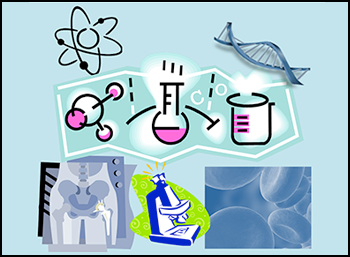Chemistry for Biomedical Engineering

Course introduction
_____________________________________________________________________________________
 Image courtesy of the authors of the course |
Chemistry for Biomedical Engineering
JUAN BASELGA LLIDÓ
|
|---|
42 hours (master class and solving problems).
Total time for the student: 162 hours.
PRERREQUISITES AND RECOMMENDED PREVIOUS KNOWLEDGE
Previous knowledge in general chemistry, naming compounds and formulation required.GENERAL DESCRIPTION OF THE COURSE
Basic principles of chemistry for Biomedical Engineers. The course is focused on: Atoms, molecules, states of matter, thermochemistry, equilibrium reactions (general, acid-base, solubility and redox), kinetics and organic chemistry.
OBJECTIVES: KNOWLEDGE AND SKILLS
The student should be able to understand the basic principles of Chemistry in terms of the structure of matter and its properties, thermodynamics, chemical kinetics and chemical equilibrium. More specifically, the students will learn:
- To use the scientific method as a basic methodology for the study and development of any science and in particular, Chemistry.
- The main aspects relative to the structure of matter: atoms, molecules, gases, liquids and solids will be studied as well as the main laws that conditioning their behavior.
- To elucidate whether chemical reactions are spontaneous or not from a thermodynamic point of view.
- To understand the importance of chemical kinetics and the role of catalyst on chemical and biochemical proccesses .
- The basis of chemical equilibrium that will be applied to acid-base, solubility reactions and to electrochemistry.
- The basis or organic chemistry: stereochemistry and reactions
General skills:
- Ability to obtain the necessary information, knowledge or understanding in order to develop solutions for specific applications
- Ability to solve complex problems
- Ability to apply multidisciplinary knowledge for resolving a specific problem
TEACHING MATERIAL
The students will find a set of slides explaining each topic and a set of exercises with numerical solutions. Also global evaluation exercises are avilable with its corresponding solutions and a set of useful webs and books.
PRACTICAL ASSIGMENTS AND ASSESSMENT ACTIVITIES
The assesment will consist on a set of exercises to be done individually by each student.